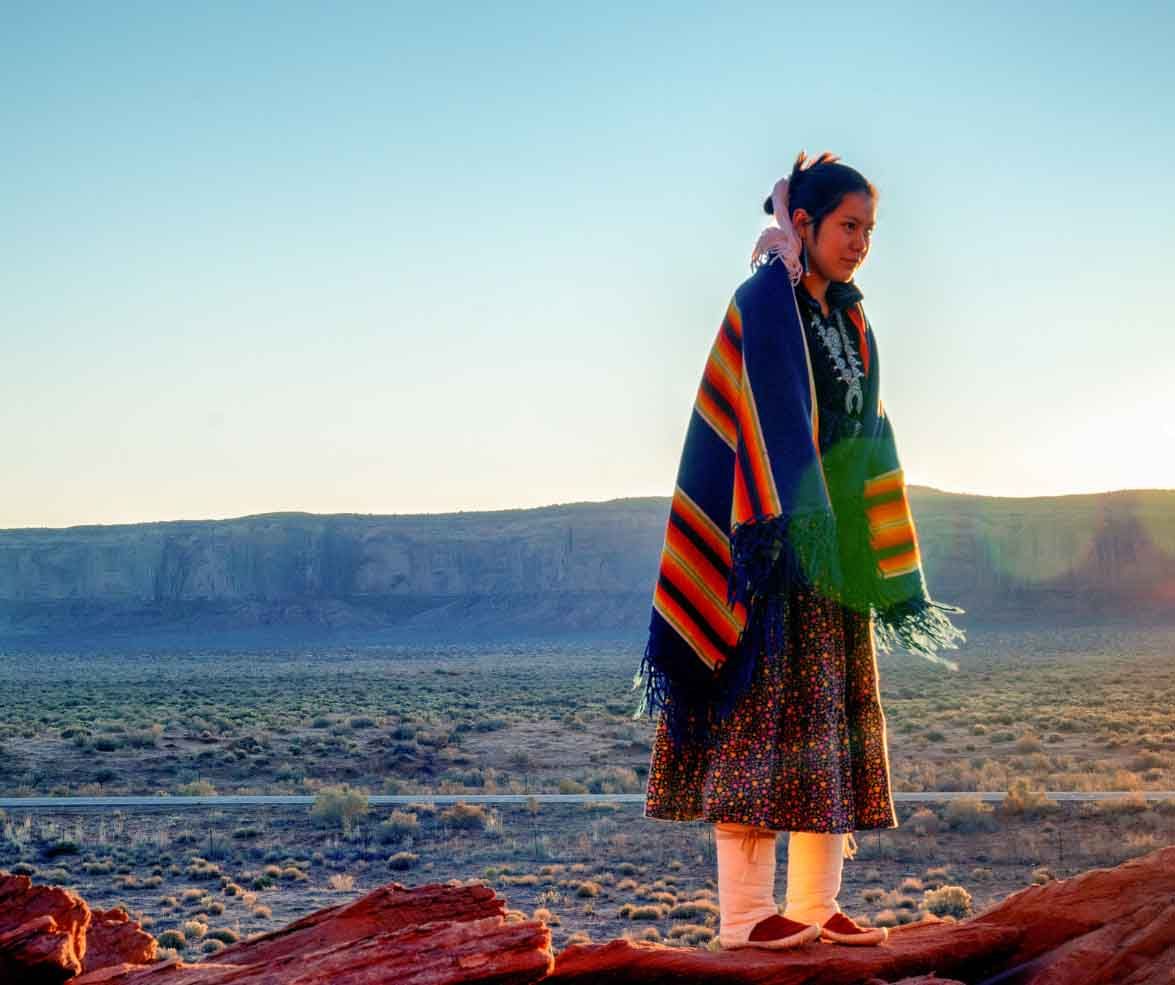Confronting Challenges & Forging New Pathways

By Chevie Coronado
Native American Heritage Month is celebrated each November, as a time dedicated to honoring the rich histories, diverse cultures, and significant contributions of Native American tribes/nations across the U.S. This month provides an opportunity to reflect on the resilience, struggles and achievements of Indigenous communities, while also addressing the ongoing challenges they face. It’s a time to learn about the unique traditions, languages, and ways of life that have existed on these lands for thousands of years, offering all Americans the chance to gain a deeper understanding of Indigenous heritage ad its influence on society today.
Native American Heritage Month originated as a way to promote awareness of Native American issues and to celebrate the cultural diversity within Indigenous communities. The concept of setting aside a time recognize Indigenous Americans dates back to the early 20th century. Red Fox James, a Blackfeet Nation member, traveled across the country advocating for a day to honor Indigenous Americans in 1915, and in 1990, President George H. W. Bush designated November as National Native American Indian Heritage Month. The significance of November relates to the time of the annual harvest, a period that many Indigenous tribes/nations consider a time of thanks, giving, reverence and reflection.
Throughout history, Indigenous Americans have contributed significantly to American society, from their rich agriculture practices, knowledge of natural medicine and sustainable ways of life to their innovations in art, architecture and governance. Many democratic principles within the U.S. government draw inspiration from Indigenous governance systems, such as the Iroquois Confederacy. This form of leadership, based on unity, collective decision-making and mutual respect, influenced early American political thought and continues to serve as a model for cooperative governance.
During Native American Heritage Month, schools, museums and cultural institutions organize events that showcase Indigenous art, storytelling, dance and cuisine. Many people are introduced to Indigenous heroes, past and present, like Chief Joseph, Wilma Mankiller and Joy Harjo, who have broken barriers and advocated for Indigenous rights. Celebrating these figures helps to counteract stereotypes and present a fuller picture of Indigenous communities, their struggles and their achievements.
However, Native American Heritage Month is not only a celebration but also an important reminder of the challenges that Indigenous communities still face. Issues like land rights, health disparities, education access and protection of cultural practices remain areas of concern. For example, the land traditionally inhabited by Indigenous tribes has been steadily reduced, with only a fraction remaining under Native control. Environmental justice and land sovereignty continue to be pressing issues, as many Indigenous activists work tirelessly to protect their ancestral lands from pollution, development and resource extraction.
The observance of Native American Heritage Month serves as a call to action for all Americans to acknowledge and support Indigenous rights and initiatives. Indigenous Peoples’ environmental stewardship and sustainable approaches to natural resources offer insights that are especially relevant in today’s discussions around climate change and ecological conservation. The wisdom embedded in Indigenous knowledge systems, which emphasize harmony with nature, respect for all living beings and community-centered values, provides valuable guidance in addressing modern environmental changes.
Native American Heritage Month is an essential time for reflection, education and community building. It is a chance to honor the lasting impact of Indigenous contributions to our world and to recognize the importance of preserving and supporting Indigenous cultures. By celebrating this month, Americans can contribute to a more inclusive and informed understanding of their country’s history, one that respects the central role of Indigenous communities and their enduring legacy.

Resource Categories
- Kiara’s Note – Blog
- Mental Health Matters – Blog
- Voices of Hope – Blog
- Humans of Jefferson Center
- Addiction & Substance Use
- Anxiety
- Child Mental Health
- Crisis and Trauma
- Depression
- Exercise
- Just The Facts
- LGBTQIA+ & Pride
- Medicaid
- Men’s Mental Health
- Parenting
- Recovery
- Senior and Older Adult
- Socializing
- Stigma
- Stress
- Suicide Prevention
- Support & Advocacy
- Teen’s Mental Health
- Treatment Options
- Women’s Mental Health